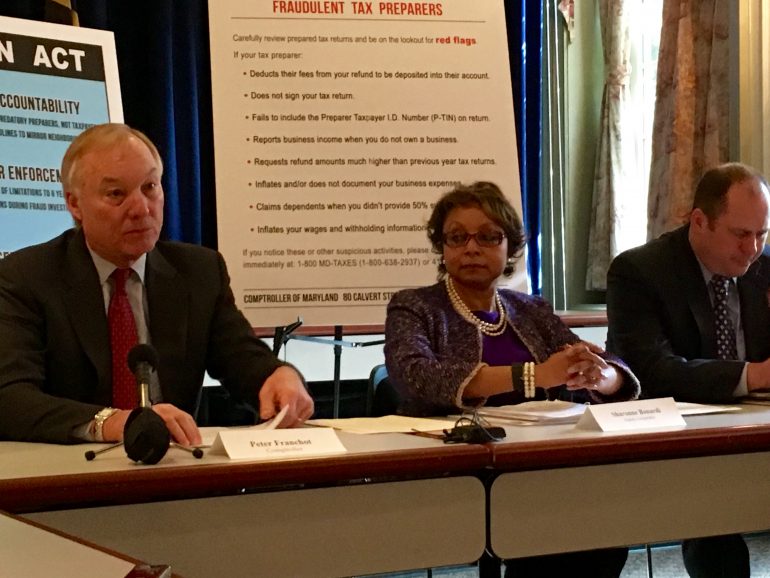
ANNAPOLIS – During Maryland Comptroller Peter Franchot’s first year in office more than eight years ago, his staff prevented 314 cases, or about $656,000, of fraudulent tax returns.
In the first three weeks of 2016, Franchot said, the comptroller’s office has stopped more cases of fraud than in 2007 altogether, totaling more than $780,000.
“The number has increased dramatically,” Franchot said. “People are hurting the well-being of hard-working taxpayers and … robbing (them) of their money, credit and financial security.”
After tens of thousands of taxpayers have suffered from fraud and identity theft, Franchot said Friday his office will “take the responsibility into our own hands” by launching a full-scale investigation and ramping up fraud detection and prevention efforts in order to protect Maryland taxpayers.
While officials would not specify how many tax returns are part of the investigation, Kathy Henry, manager of processing control in the office’s revenue administration division, said some individuals involved in fraud have been in the business for years, but she could not confirm how many.
On Feb. 9, the office announced it would stop processing electronic and paper tax returns from 11 more private tax preparers across the region, and in November 2015, Franchot signed a Memorandum of Understanding with the Internal Revenue Service.
“We don’t have the ability to keep them from operating, but we’re not processing them,” said Deputy Comptroller Sharonne Bonardi.
Jeff Kelly, director of the comptroller’s office’s field enforcement division, said the situation is “very frustrating because we’re so limited” in resources, adding that not many individuals have been prosecuted for committing fraud or identity theft.
“We need more tools,” Franchot said. “We should be able to shut down these tax preparers immediately. All I’m saying is give me the enforcement authority.”
In an attempt to gain this authority and bring committers of fraud to justice, Franchot proposed the Taxpayer Protection Act to the Senate Budget and Tax Committee last month. He called this legislation “essential,” and said he is counting on the General Assembly to pass it.
“This is not the first time this has happened,” Franchot said, “which is why we remain focused and use every tool at our disposal. We’ll follow this wherever it goes.”
–30–


You must be logged in to post a comment.